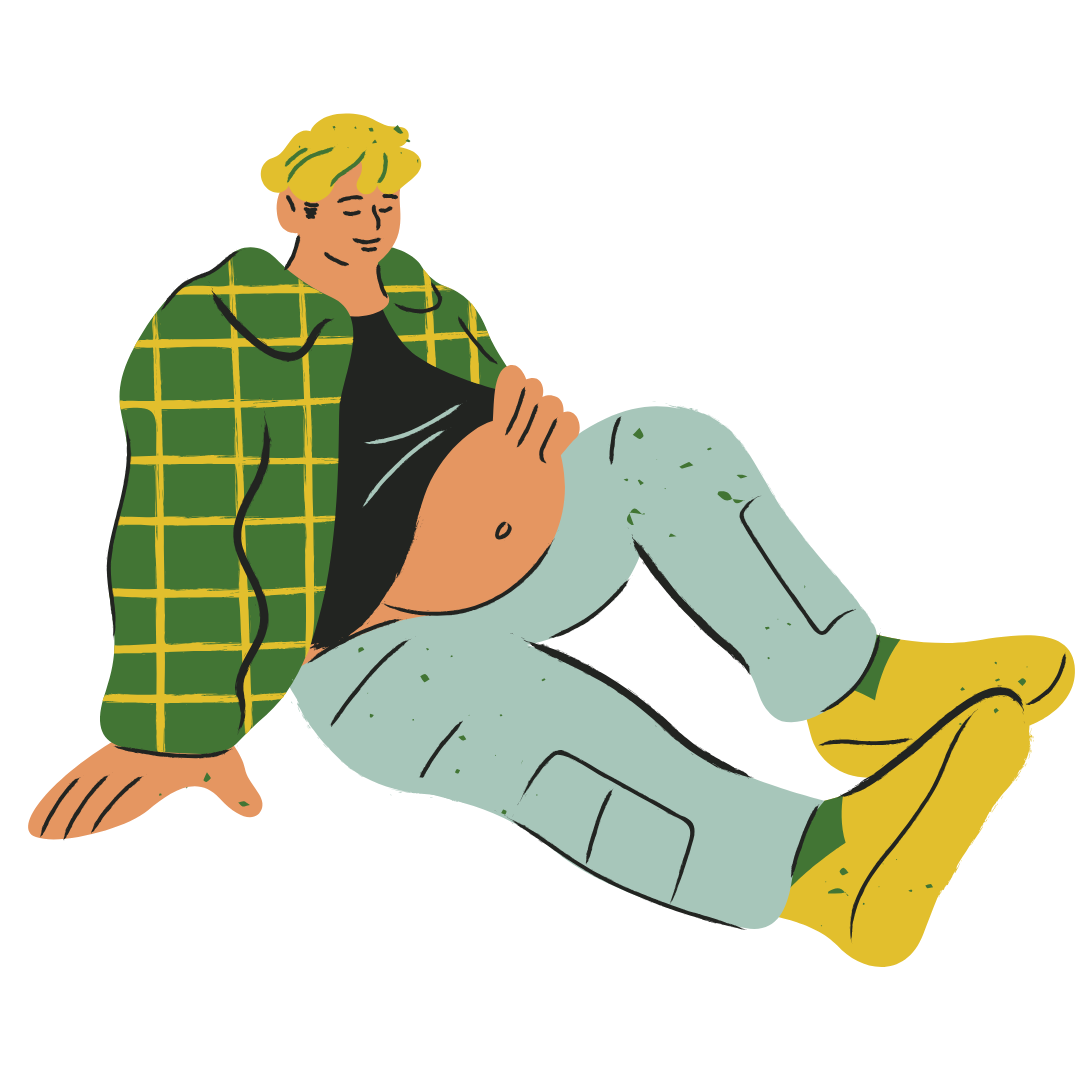5 Reasons Why Pro-Choice YQL Centers Trans & Queer Abortion Care
Because reproductive justice is gender-inclusive, intersectional, and unapologetically queer.
We Know Pregnancy Isn’t Just a “Women’s Issue”
Cis women aren’t the only people who get pregnant. Trans men, non-binary folks, Two-Spirit people, and other gender-diverse individuals can all experience unwanted pregnancies—but they’re often erased from the conversation.
Centering cis women as the default erases everyone else—and erasure leads to trauma, violence, and even death. When abortion access is designed only for straight, white, cis women, it leaves behind the most vulnerable.
Action Canada and Egale Canada have shown that 2SLGBTQ+ people face systemic barriers to accessing sexual and reproductive health care—including being misgendered, denied services, or not having their needs understood at all. (Action Canada, Egale Canada)
When we say abortion is a queer and trans issue, we’re not being radical—we’re being realistic.
Reproductive justice that doesn’t account for all genders is just incomplete.
2. We’re Done With Gendered Language That Excludes
We don’t assume your gender—or your experiences. Our materials, services, and conversations use inclusive language like “pregnant people,” “abortion seekers,” and “people who menstruate.”
Why? Because misgendering is a barrier to care. Trans and non-binary people report avoiding healthcare entirely out of fear of discrimination. In Canada, 47% of trans respondents to a Trans PULSE Canada study said they had one or more unmet healthcare needs in the past year. (Trans PULSE Canada)
Historically, reproductive health advocacy has been framed around white, cisgender, heterosexual women—particularly those who fit a narrow ideal of femininity and motherhood. That narrative leaves out Indigenous, racialized, disabled, queer, and trans people entirely. And when we do show up in conversations around abortion, it’s often as an afterthought, not as people with specific & valid needs.
This erasure is part of the broader system of homophobia, biphobia, and transphobia.
When the language of care excludes us, so does the care itself.
If we want abortion access to be truly liberatory, it has to speak to everyone who needs it—not just those who fit outdated molds.
3. We Fight for Abortion Access as Part of Queer Liberation
Abortion access is about bodily autonomy, and so is being queer, trans, or non-binary. These are not separate issues but are interconnected struggles against state and social control over our bodies, choices, and identities.
Historically, queer and abortion rights activists have fought shoulder-to-shoulder. From the women's liberation movements of the 1960s and 70s to ACT UP and queer health activists in the 80s and 90s, we’ve seen movements align to challenge the same oppressive forces—patriarchy, medical gatekeeping, heteronormativity, and systems of white supremacy.
The work of queer activists like Marsha P. Johnson and Sylvia Rivera, who advocated not just for LGBTQ+ rights but for broader social justice—including sex worker and reproductive rights—shows us that these fights have always been linked.
Our vision of liberation is intersectional, informed by queer resistance, and rooted in the belief that no one should have to justify their identity to access care.
IDAHOBIT reminds us that queer and trans folks are still criminalized, stigmatized, and denied healthcare globally.
The fight for queer rights cannot be separated from the fight for abortion rights.
4. We Know Queer & Trans Folks Face Unique Health Risks
Let’s be real—healthcare clinics weren’t built with us in mind. From forms that only have “male” and “female” boxes to waiting rooms full of assumptions, queer and trans folks are too often treated as medical mysteries—or worse, as problems.
We’re not problems. We’re people. And we’re done asking nicely.
A 2023 Canadian study found that many trans and non-binary youth avoided reproductive healthcare because they were afraid of being discriminated against. And in Ontario, 29% of transgender individuals who needed emergency services were unable to access them.
You know what actually makes a difference? Clinics that say, loud and clear: we see you, we’ve got you, and we’re ready to fight for you.
Pro-Choice YQL is committed to making that happen. We advocate for gender-affirming practices, ensure our providers are vetted and trained in trauma-informed, queer-competent care, and push for policies that break away from the cis-hetero status quo.
Because no one should ever have to choose between their identity and their healthcare. Not now. Not ever.
When healthcare is trans-inclusive, people experience better health outcomes, less mental distress, and they’re more likely to get the care they need when they need it.
5. We’re Building Systems That Actually Work for Us
Queer and trans people are done trying to fit into systems that weren’t built with us in mind. We’re not interested in tweaking the edges—we’re working to transform reproductive healthcare entirely.
That means:
Refusing gender-essentialist models of care
Demanding inclusive policies, from clinic forms to national health data
Centering BIPOC, disabled, sex-working, and low-income voices in abortion access conversations
Too often, “inclusion” just means being invited to a table that’s already set against us. We’re not waiting for a seat—we’re building new tables, new clinics, and new ways of caring that reflect our actual lives.
Reproductive justice isn’t about fitting in—it’s about creating a community where we all belong.
Get Involved






